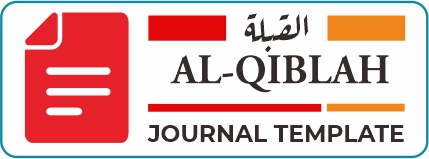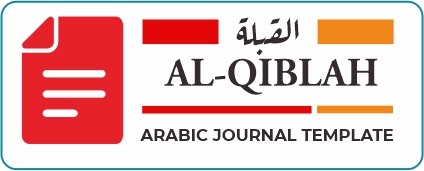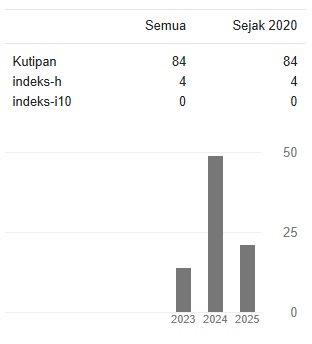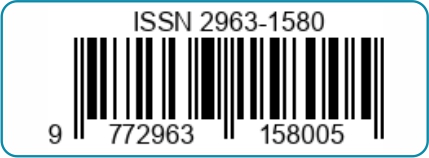Wasiat Penggunaan Tubuh Manusia sebagai Bahan Penelitian dalam Perspektif hukum Islam
DOI:
https://doi.org/10.36701/qiblah.v3i4.1637Keywords:
Wasiat, Tubuh Manusia, Bahan Penelitian, Hukum IslamAbstract
This study examines the will for the use of the human body as research material from the perspective of Islamic law. The primary objective is to analyze the provisions of Islamic law regarding the will for the use of the human body for research, which underpins the acceptance or rejection of the use of the human body in research. The research methodology includes literature review and content analysis from Islamic legal sources, with a normative and philosophical juridical approach. The research problems addressed in this study encompass two main topics: first, the concept and basic principles of wills in Islam; and second, the Islamic legal perspective on the practice of using the human body as research material. The results of the study show that Islamic law emphasizes the importance of respecting an individual's will or consent before death in the context of scientific research. The will for the use of the human body for research can be analyzed based on five categories of taklifi law. If the will meets all sharia requirements, it can be categorized as a recommended will. The contribution of this study to the discipline is the affirmation that the balance between scientific advancement and respect for religious values must always be maintained. This study also highlights the relevance of sharia principles in modern medical research ethics, especially in life-threatening situations, and the importance of scientific transparency and responsibility to avoid exploitation.
Downloads
References
Buku:
Akbar, Khaerul, dkk. Pedoman Penulisan Karya Tulis Ilmiah (KTI) STIBA Makassar. Makassar: STIBA Publishing, 2022.
Ali, Zainudin. HUKUM ISLAM Pengantar Ilmu Hukum Islam Di Indonesia. Jakarta: Sinar Grafika, 2006.
Al-Baba>rti, Akma>l al-Di>n, Al-‘Ina>yah Syarh} al-Hida>yah, juz 10; Lebanon: Da>r al-Khat}ab al-‘Ilmiyah, 1428 H/ 2007 M.
Al-Bukha>ri, Muh{ammad ibn Isma>’i>l al-Ju’fi>, Sah{i>h al-Bukha>ri Juz: 3; Bairu>t: Da>r ibn Kas{i>r, 1414 H/1993 M.
Dubya>n ibn al-Dubnaya>n Muh{ammad. Al-Mu'a>malah al-Ma>liyyah. Riya>d{: Maktabah al-Malik Fahad, 1434 H/2013 M.
Al-Hamad, Hamad ibn ’Abdullah ibn ’Abdul ’Azi>z. Manzu>mah al-Qaw'a>id al-Fiqhi Lissa’di. Riya>d{: Maktabah al-Ima>m al-Zahabi, 1436 H/2015 M.
‘Ilyas, Manh{u al-Jali>l Syarh{u Mukhtas{ar Khali>l. Juz: 9; Damaskus: Da>r al-Fikr, 1409 H/1989 M.
Juliansyah Noor. Metodologi Penelitian. Jakarta: Kencana Prenada Media Group, 2011.
Al-Maqdisi ibnu Quda>mah, Al-Mugni Cet: III; Riya>d{: Da>ru 'A>lam al-Kutub, 1417 H/1997.
Masyuri dan M. Zainuddin. Metodologi Penelitian. Bandung, 2008.
Muslim, Sah}i>h{ Muslim, Juz 3; Kairo: Da>ru Ih{ya> al-Kita>b al-Arba’ah.
Muh{ammad Sidqi ibn Ah}mad ibn Muh}ammad al-Burnu> Abi al-Hari>s|\| al-G{a>zi. Al-Waji>z Id{a>h{i Qawa>’id al-Fiqhiyyah al-Kuliyyah. Bairu>t: Muassasah al-Mursalah, 1416 H/1996 M.
Al-Nawa>wi>, Syarh{u al-Na>wawi> ‘Ala Muslim, Juz 11; Bagdad: Da>r al-Khair, 1416 H/1996 M.
Sabiq, Sayyid. Fiqh Sunnah. Bairut: Dar al-Fikr, 1410 H/1990 M.
Sa>lih{, Muh{ammad ibn, al-Us}ūl min 'Ilmu al-Us{ūl, Cet. 4; Iskandariyyah: Da>r Ima>m Iskandariyyah, 1430 H/2009 M.
Suharsimi Arikunto. Prosedur Penelitian: Suatu Pendekatan Praktek. Jakarta: PT. Rineka Cipta, 2006.
Sulaimān ibn Jāsir ibn 'Abdul Karīm al-Jāsir. Lamh}a>t Muhimmah Fi> al-Was{iyyah. Riya>d}: Mida>r al-Wat}an Linnasyr, 1434 H/2014 M.
Ta>ju al-Di>n al-Fa>kiha>ni>. Riya>d{u al-Afha>m al-Fakiha>ni. Suriya: Da>r al-Nawa>dir. Cet: 1; 143 H/2010 M.
Jurnal Ilmiah:
A. S, Nugraha, dkk. “The Development of Deceased Donor Liver Transplantation in Indonesia: Ethical and Legal Issues” Acta Medica Indonesiana, 51 (2019).
Aisyah, Nur. “Wasiat Dalam Pandangan Hukum Islam Dan BW.” El-Iqthisady: Jurnal Hukum Ekonomi Syariah, (2019).
Aqbar, Khaerul. “Penerapan Akad Syirkah Pada PT. Barokah Biqalbin Salim Rumah Jahit Akhwat (RJA) Makassar Dalam Perspektif Fikih Muamalah,” BUSTANUL FUQAHA 4, (2023).
Hamzah, Nur Asia. “Darurat Membolehkan Yang Dilarang.” JURNAL PILAR 11, (2020).
Ingrid Ingka Pramewari. “Pemanfaatan Organ Tubuh Manusia Melalui Wasiat Berdasarkan Hukim Islam,” (2005).
Lintang, Reggy. “Aspek Hukum Terhadap Pemanfaatan Organ Tubuh Manusia Untuk Kelangsungan Hidup.” Lex et Societatis 1 (2013).
Ponto, Veisy Anathasya. “Analisis Yuridis Penggunaan Organ Tubuh Sebagai Objek Wasiat Dikaitkan Dengan Perundang-Undangan Kesehatan” Lex Privatum 11 (2023).
Rahmat Hidayat. “Konsep Manusia Dalam Alquran.” Almufida 2 (2017).
Syahddan Diantara Lubis. “Mewasiatkan Organ Tubuh Sebagai Objek Wasiat Berdasarkan Fikih Kontemporer” ANWARUL 3 (2023).
Toni Pransiska. “Meneropong Wajah Studi Islam Dalam Kacamata Filsafat: Sebuah Pendekatan Alternatif.” Intizar 23 (2017).
Disertasi, Tesis, dan Skripsi:
Munif Mahadi Attamimi. “Hak Asasi Manusia Perspektif Al-Qur’an (Dimensi Akidah, Syariat Dan Akhlak.” Disertasi. Program Studi Doktor Ilmu aL-Qur’an dan Tafsir Konsentrsi Ilmu Tafsir Program Pascasarjana Institut PTIQ Jakarta, 2020.
Solehah Binti Ahmad, Solehah. “Hukum Wasiat Donor Tubuh Manusia Dan Pelaksanaanya Menurut Hukum Islam Dan Akta 130 Tisu Manusia Tahun 1974 Undang-Undang Malaysia.” Skripsi. Palembang: Uin Raden Fatah Palembang, 2018.
Situs dan Sumber Online:
https://artikula.id/dhany/prinsip-prinsip-riset-ilmiah-dalam-perspektif-al-quran/
Fatwa dan Perundang-undangan:
Majelis Ulama Indonesia, Fatwa MUI Nomor 12 tahun 2007 Tentang Penggunaan Jenazah Untuk Kepentingan Penelitian Jakarta: Komisi Fatwa Majelis Ulama Indonesia, 2007.



 FOCUS AND SCOPE
FOCUS AND SCOPE EDITORIAL TEAM
EDITORIAL TEAM












